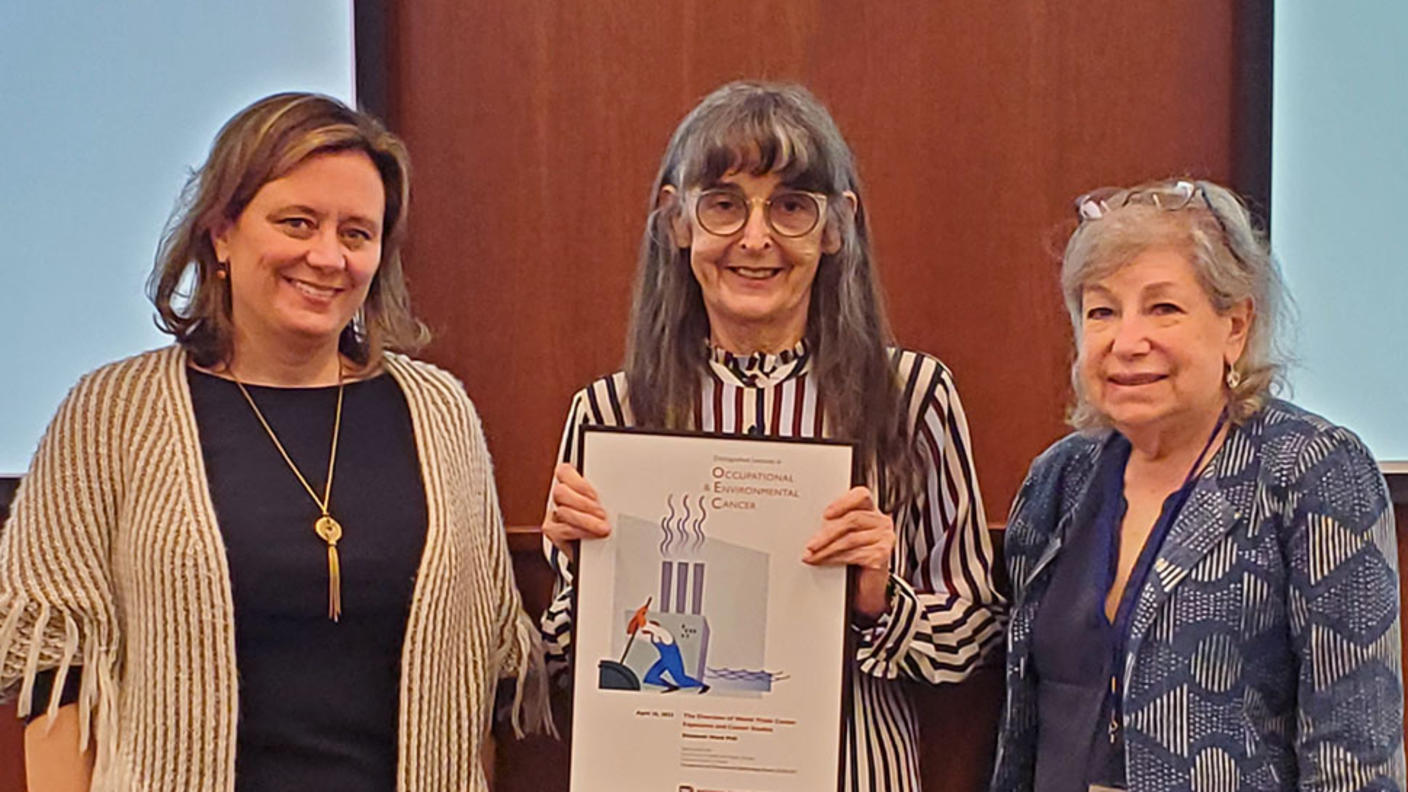Occupational and Environmental Epidemiology Branch

Identifying workplace and environmental exposures associated with cancer risk
The Occupational and Environmental Epidemiology Branch (OEEB) conducts studies in the United States and abroad to identify and evaluate environmental and workplace exposures that may be associated with cancer risk.
Research Mission
OEEB's mission is to combine epidemiology, quantitative exposure assessment, and molecular components into multi-disciplinary studies to provide insight into cancer etiology, chemical carcinogenesis, and mechanisms of action. Our main research areas include:
- Industrial and Occupational Exposures
- Environmental Exposures
- Exposure Assessment Methods
Read more about OEEB's research areas and activities.
Fellowships
Training opportunities for junior investigators include planning new projects, participating in ongoing investigations, and analyzing data from studies whose fieldwork is completed. Pre-doctoral and postdoctoral fellows are mentored by senior investigators in the Branch.
Collaborations
The breadth of OEEB's occupational and environmental risk factor research offers many possibilities for collaboration with investigators at other government agencies, domestic and international institutions, and academia, as well as training opportunities for young scientists. Collaborations are underway in over 30 states and Puerto Rico in the U.S., as well as over 30 countries in North and South America, Europe, Asia, the Mideast, and Australia.
OEEB Editorials and Commentaries
- Purdue MP and Ward MH. How Far Have We Come? Revisiting a 2009 Report on Occupational Cancer Research Recommendations
- Friesen MC and Beane Freeman LE. Identifying occupational risk factors for cancer in women: A need for further action
- Beane Freeman LE. Pesticide adjuvants and inert ingredients — A missing piece of the puzzle
- Jones RR. The complexities of PM2.5, greenspace, and childhood cancer
- Koutros S. The need for, and challenges associated with, assessing occupational work histories for bladder and other occupational cancers
- Jones RR and White AJ. Invited perspective: New motivations and future directions for investigating environmental risk factors for breast cancer
Recent Publications by OEEB Researchers
View a list of OEEB publications.
- Acrylonitrile Exposure at Work Associated with Significant Risk to Workers
- Carcinogenic industrial air pollution emitted inequitably across the U.S.
- An updated evaluation of atrazine-cancer associations among pesticide applicators in the Agricultural Health Study Cohort
- Childhood leukemia linked to PFAS levels measured in mother's first trimester
- Ultrafine particulate matter associated with lung cancer
- PFAS levels and kidney cancer risk in the Multiethnic Cohort Study
- The Diesel Exhaust in Miners Study (DEMS) II: Temporal factors related to diesel exhaust exposure and lung cancer mortality in the nested case–control study
- Diesel exhaust exposure and cause-specific mortality in the Diesel Exhaust in Miners Study II (DEMS II) cohort
- A nested case–control study of serum per- and polyfluoroalkyl substances and testicular germ cell tumors among U.S. Air Force servicemen
- Ethylene oxide emissions and incident breast cancer and non-Hodgkin lymphoma in a U.S. cohort

